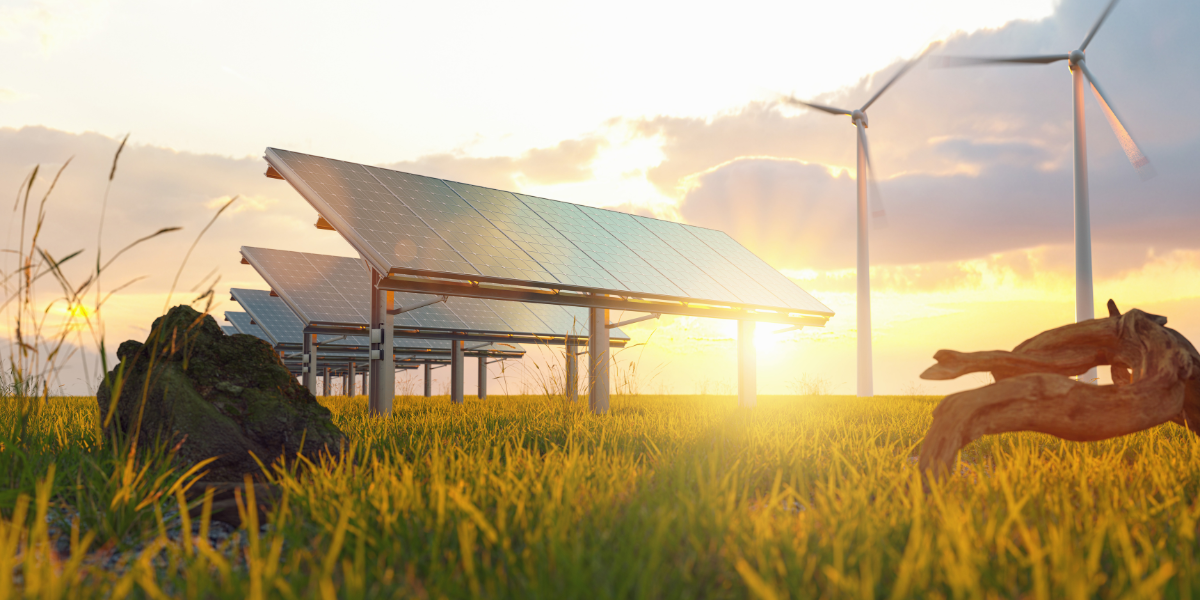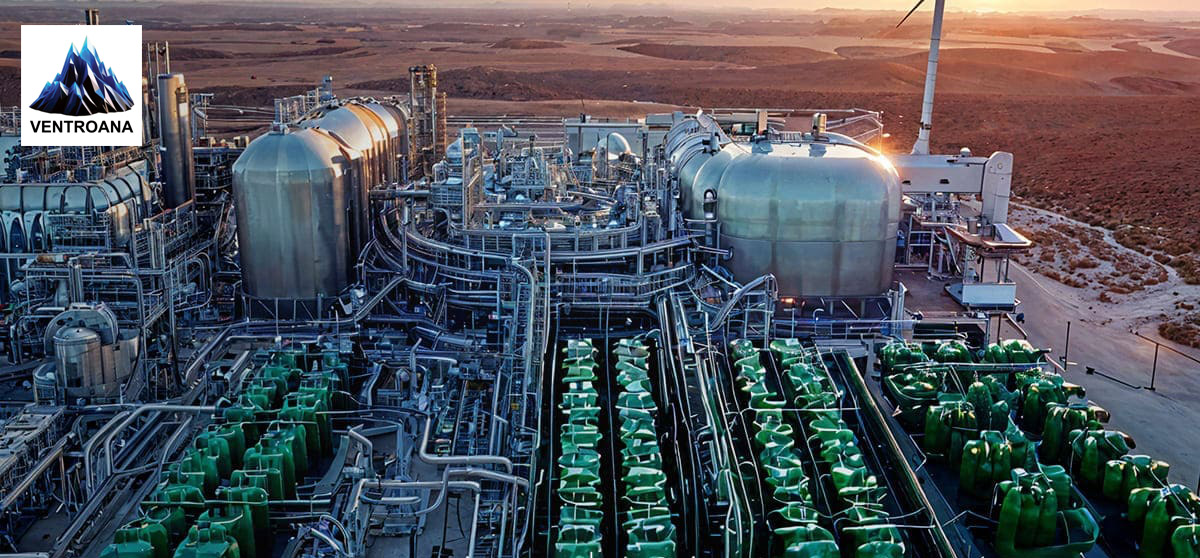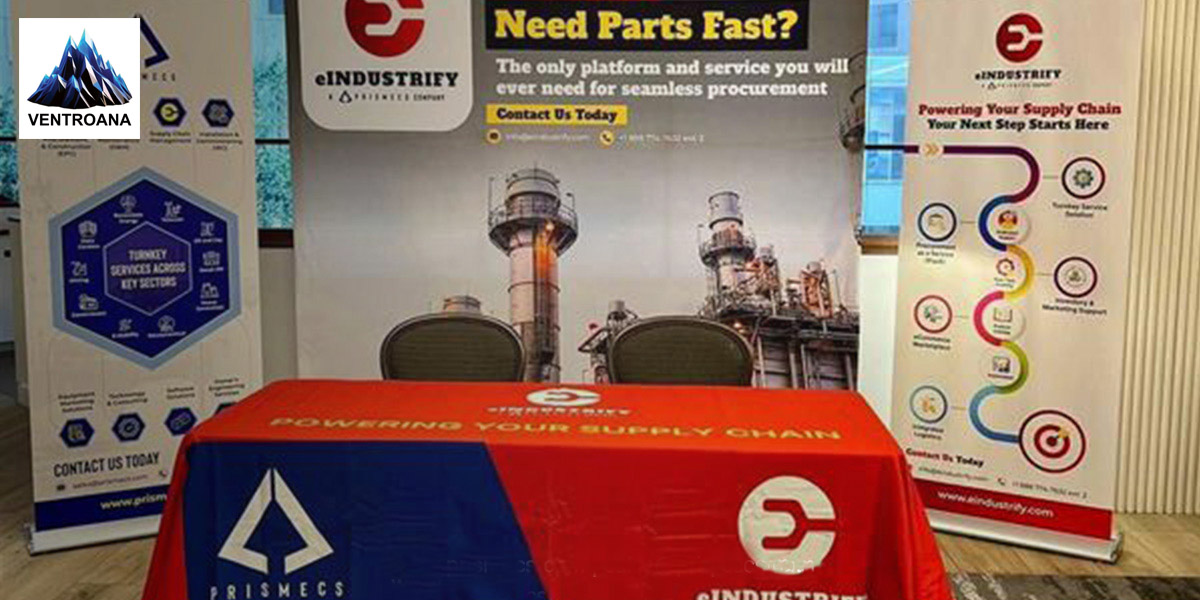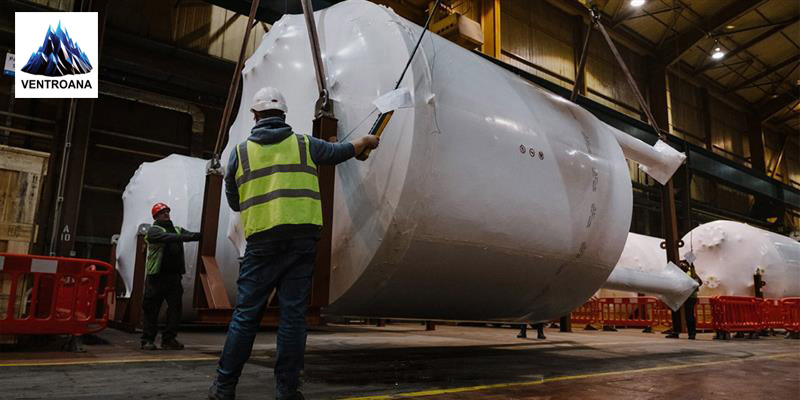Renewables
January 20, 2024

In an era of increased environmental concerns, renewable energy sources have gained prominence for their remarkable potential. As we stand on the brink of transformative change, a new era of possibilities unfolds before us. Through this blog, we will embark on an exploration of the dynamic innovations fostering the future of renewables, the obstacles to the energy transition, and the latest technological advancements.
As the world races towards a sustainable future, the transition to renewable energy sources has gained unprecedented momentum. Yet this journey is not without challenges. Some of the challenges faced in the transition to renewable energy are mentioned below, along with their solutions.
One of the most prominent challenges to the adoption of renewable energy is the intermittent nature of renewable sources like solar and wind. The sun doesn't always shine, and the wind doesn't always blow. This variability can disrupt the stability of the power grid. However, energy storage solutions are rapidly evolving to address this issue. By foreseeing when renewable sources will be at their peak, downtime can be minimized, and backup power sources can be activated seamlessly.
Energy Storage may be an important innovation, but it also has limitations. When the sun is abundant or the winds are strong, the excess energy generated needs to be stored. Lithium-ion and other advanced battery technologies offer a promising solution to intermittency challenges. These batteries can store excess energy during peak production times and release it when demand is high, helping to balance the grid.
Transitioning to renewable energy requires more than just installing solar panels or wind turbines. Old infrastructure poses a significant challenge, as it may not be optimized for efficient renewable energy distribution. Upgrade grid infrastructure to accommodate higher renewable energy penetration, incorporating advanced grid management and energy storage technologies to ensure stability and reliability.
Renewable energy sources and their technological advancements play a key role in shifting our global energy landscape towards sustainability and reducing our reliance on fossil fuels, thereby mitigating climate change.
Solar energy remains at the forefront of the renewable energy revolution, with photovoltaic technology becoming more efficient and cost-effective. Recently, we observed a significant surge in solar installations across the globe. According to SEIA forecasts, home solar power will grow by around 6000 to 7000 MW per year between 2023 and 2027. Innovations such as transparent solar panels integrated into building materials are also gaining traction, blending seamlessly with urban architecture and maximizing energy capture.
A microgrid is a localized energy system that operates independently or in conjunction with the primary grid, generating, distributing, and storing electricity on a smaller scale. It transforms lives and economies by providing reliable electricity, fostering self-sufficiency, and aiding communities in challenging grid environments. Microgrids bring power to remote areas and spur economic growth. Moreover, they boost energy resilience by disconnecting from the primary grid during disasters or failures and sustaining vital facilities like hospitals and communication centers.
The global microgrid market size is expected to surpass USD 168.64 billion by the end of 2032, expanding at an annual growth rate (CAGR) of 18.7% from 2023 to 2032.
Estimated growth of $168.64 Billion by the end of 2032, with a CAGR rate of 18.7%
The wind energy sector is witnessing impressive growth, both onshore and offshore. Advancements in wind turbine technology, such as larger and more efficient blades, have increased energy output and reduced costs. Floating wind farms have also emerged as a promising solution, allowing the harnessing of wind resources in deeper waters where traditional offshore wind farms are not feasible. According to a report by Renewable Energy World, wind power experts expect wind energy costs to decline by up to 35% by 2035.
A decrease in wind energy costs is expected to reach 35% by 2035.
Smart grids are not just a technological upgrade; they signify a revolutionary shift in the way we generate, distribute and consume energy. One of the primary functions of smart grids is to promote energy efficiency. They enable demand-response mechanisms, allowing utilities to incentivize consumers to reduce energy consumption during peak periods, thus stabilizing the grid and preventing overloads.
Here is a case study in the context of the renewable energy transition, in which Ventro Analytics helped in the transformation of the energy landscape by utilizing energy storage systems to manage energy consumption.
Installation of a 7 MW Battery Energy Storage System (BESS) with a capacity of 28MWh.
Energy storage plays a key role in optimizing the utilization of self-generated energy from small-scale renewables for our clients, thereby introducing heightened flexibility to the power grid and mitigating fluctuations within the system. Ventro Analytics successfully executed a groundbreaking project involving a 7 MW Battery Energy Storage System (BESS) with a capacity of 28 MWh. The project focused on capturing excess energy from photovoltaic (PV) solar installations in North America.
Ventro Analytics was responsible for supervising the creation of technical, performance, and safety guidelines for BESS. Once we formulated the RFI and RFP documents, we guided the assessment of designs from different BESS manufacturers. Additionally, we took charge of drafting a utility interconnection application on behalf of our clients.
Ventro Analytics initially created a photovoltaic (PV) model to measure the magnitude of excess energy loss. Utilizing our PV system model, we determined the appropriate capacity for a battery energy storage system (BESS) that could mitigate the surplus energy loss from the PV system. Additionally, we actively participated in evaluating the design and selecting a suitable vendor for the BESS.
By overcoming challenges related to energy loss, and safety, the BESS project demonstrated the potential of integrating cutting-edge technologies and expertise. The successful execution of the 7 MW BESS project with a capacity of 28 MWh stands as a testament to Ventro Analytics' capability to revolutionize the renewable energy landscape and provide valuable insights for future sustainable energy projects.
The future of renewable energy is remarkably promising. Technological innovations have accelerated the transition towards a more sustainable energy landscape. The challenges of the renewable energy transition have been overcome by implementing energy storage solutions. Solar and wind energy are thriving. Microgrids are empowering local energy solutions, and smart grids are optimizing energy usage. As we embrace renewable energy sources, we move closer to a more sustainable world for future generations.
Ventro Analytics provides top-notch solar battery expertise for dependable renewable energy solutions. Notably, we achieved a groundbreaking 28 MWh capacity project, a 7 MW Battery Energy Storage System, capturing excess energy from PV solar in North America. With extensive Oil & Gas experience and solar-battery expertise, we offer reliable renewable infrastructure setup - from solar panels to wind turbines and microgrids, delivering valuable insights and comprehensive services. Contact us today at 1-888-774-7632 or email us at sales@ventroana.com to embark on your renewable energy journey.
Tags:

Successful Implementation of Green Hydrogen in Power Plants
Discover how green hydrogen revolutionizes power plants with sustainable energy solutions, reducing ...

Driving Innovation and Resilience: Insights from the 10th Annual Energy Supply C...
Gain insights on driving innovation and resilience at the 10th Energy Supply Chain & Procurement Sum...

Understanding EPC Engineering: Key Concepts Explained
Discover the essentials of EPC Engineering, covering contracts, project phases, and roles of EPC con...